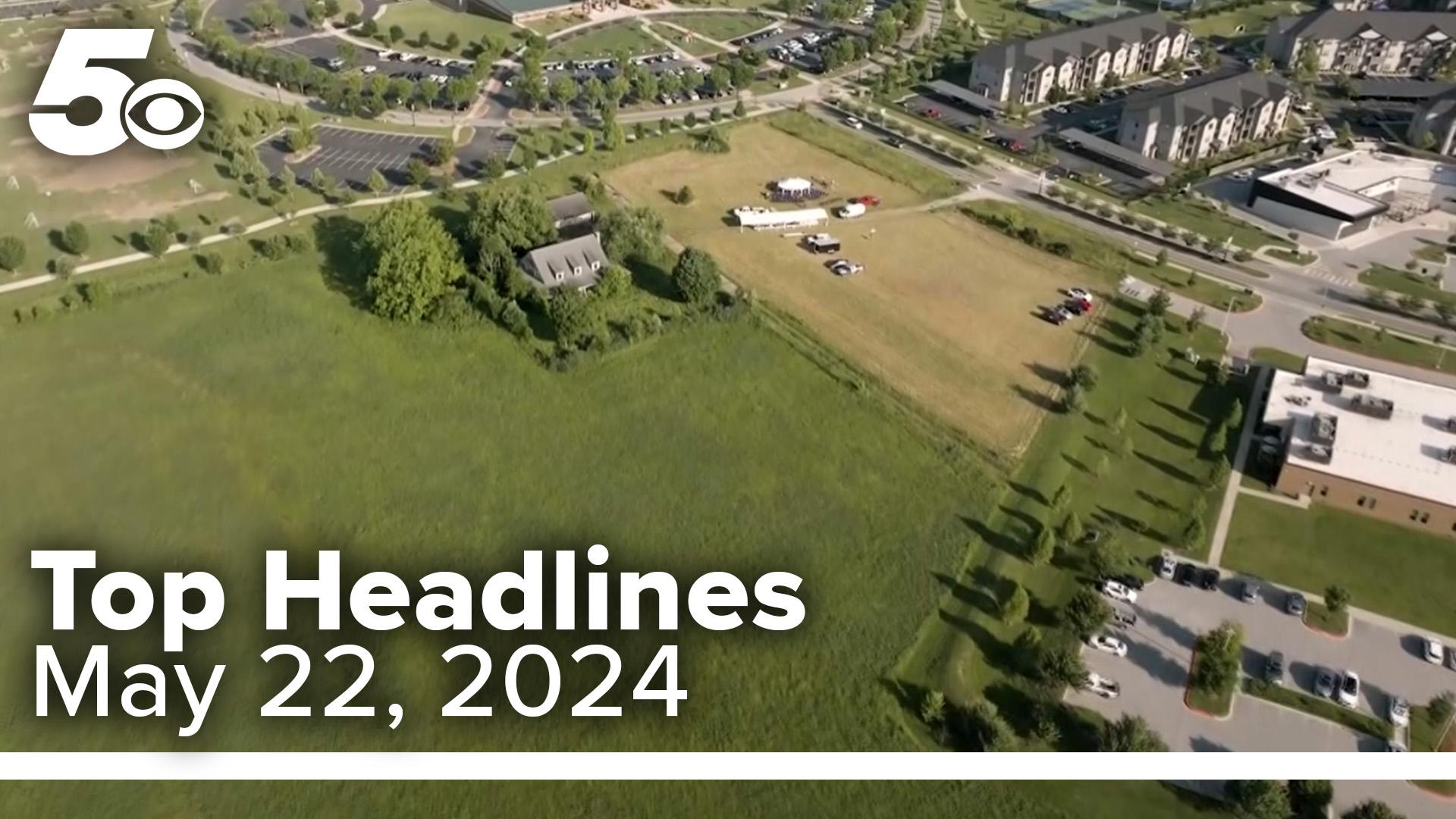LITTLE ROCK, Ark. — While attitudes and laws around marijuana are changing, for people in specific jobs, using marijuana products that get you high isn't allowed, and having it in your system could get you into serious trouble.
"We do probably anywhere from 20 to 50 people a day, said Jeff Sims, president of Xpert Diagnostics, a drug testing company tucked into a professional building in North Little Rock. "We do multiple types of testing, including federally mandated testing."
That steady stream of people ordered to get testing for a new job or to stay on the job keeps Sims busy, but modern technology can quickly get them in, out and on the job.
But after 30 years of testing job applicants and others suspected of drug use, Sims sees a new obstacle surfacing in these high-tech test tubes.
"It is definitely marijuana," Sims said. "That is the most dominant drug we pick up."
A new study from testing giant Quest Diagnostics found that marijuana positivity among the U.S. workforce has gone up 45% over the past five years—no surprise, as it becomes more accepted and legalized.
However, for those still required to be tested for marijuana, there's a potential tripwire for those looking for the benefits of the drug without the high.
"When the Hemp Act was passed, this just opened up a whole new industry of gummies, and CBD oils and things like that," said Sims, referring to the 2021 Arkansas law that allowed products made from cannabis that don't contain chemicals that get a user high.
And that whole new industry created by the law exists almost entirely in a gray area of legality.
In Arkansas, we have a tightly regulated medical marijuana market. Cannabis producers create products containing the chemical THC, an ingredient that gets a person high.
Those growers can now supply a wide-open industry, selling products made from the same plant, but grown without THC. The active chemical there is CBD, which is considered legal because it doesn't get you high.
But already, Sims is detecting a problem. His tests can't tell the two products apart, putting certain workers at risk of failing required drug screens.
"We have probably about 30% of our client base that's federally mandated," Sims said. "When it's from the federal government side of it, there's no ifs, ands, or buts, I mean, there are rules."
Scientifically, this checks out despite the high-tech testing available commercially.
"A lot of the tests that are done analytically to confirm whether or not a person used a drug can't really distinguish between CBD and THC," UAMS toxicology professor Dr. Bill Fantegrossi said.
To him, it's no surprise that workers who have to get tested for their jobs, like truck drivers, police officers and crane operators, are testing positive for illegal marijuana after taking a legal CBD product.
"Let's just say a good amount of the CBD products that are available are not hemp-derived," Fantegrossi said. "They're marijuana-derived, and so because of that, within that cannabis product, there might be enough THC to be actually found on an analytical test. It's not enough to accumulate a pharmacological dose, and the person who bought it doesn't even know it's there. They never felt high, no matter how much of it they use, but those analytical tests will find it."
That's a problem, not just for truck drivers or police, but people in other jobs that also require a drug test.
"I was at an airport in Philadelphia, changing planes, and a flight attendant walked up beside me," Sims said. "She was like, 'What do you do?' And I'm like, 'Well, I'm in the drug testing business.' She immediately pulled out a bottle of CBD oil and said, 'Will I fail my drug test for this?'"
Sims also describes an experiment he and his wife performed. She visited a shop and asked a clerk if a CBD product would test positive for marijuana. The clerk predicted she would be clear, but Sims and his wife performed a baseline test before using the product and then tested again afterward.
Sure enough, she tested positive.
Fantegrossi said those test results point to other concerns for the cannabis curious. If makers don't warn you about marijuana in the product, what else does it contain?
"I think you used the term Wild West before, and that's not too far from the mark," Fantegrossi said. "It's not regulated the way drugs are. Ibuprofen 200 milligrams is going to always be ibuprofen, 200 milligrams. They can't sell it if they get too far above or below that. That's not the case with a lot of these things, though. They're just not held to those same standards yet."
That goes back to the legal gray area.
In Arkansas, medical marijuana is grown, tested and sold within the state, but CBD products can come from anywhere, and there's no strict oversight for them.
To Fantegrossi, that means trusting drug makers, who must comply with various rules across the country, to certify their own testing and quality control.
"I think if you are using any CBD products, regardless of what it says on the label, regardless of what they tell you at the store, regardless of being able to download certifications from the company website, it is entirely possible that the testing lab that your urine sample is sent to will give you a false positive for THC," Fantegrossi said.
Remember that advice, especially as you test the job market.
"I think consumers need to know that buyer beware," Sims said. "If you're in the job market, if you have a job and your employer does drug testing, this is a potential hazard."

